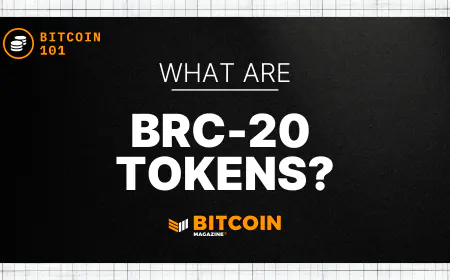John Deaton critiques SEC’s take on Bitcoin security
The U.S. Securities and Exchange Commission (SEC) and various cryptocurrency entities, John Deaton, representing XRP holders, has openly criticized the SEC lawyers for their recent statements regarding Bitcoin (BTC). During a hearing in the Coinbase Global Inc. lawsuit, SEC attorneys remarked that Bitcoin could not be classified as a security, citing its lack of an […]

The U.S. Securities and Exchange Commission (SEC) and various cryptocurrency entities, John Deaton, representing XRP holders, has openly criticized the SEC lawyers for their recent statements regarding Bitcoin (BTC). During a hearing in the Coinbase Global Inc. lawsuit, SEC attorneys remarked that Bitcoin could not be classified as a security, citing its lack of an encompassing ecosystem. This statement has sparked a new debate in the crypto legal arena, highlighting the ongoing challenges in defining and regulating digital currencies.
John Deaton challenges SEC’s view on Bitcoin
The SEC’s analogy, positioning Bitcoin as a non-security due to the absence of a centralized ecosystem, forms a central aspect of the regulator’s approach to differentiating cryptocurrencies. This viewpoint suggests that digital currencies backed by identifiable bodies, development teams, or Decentralized Autonomous Organizations (DAOs) could be classified as securities. This perspective is rooted in the idea that these entities represent a common interest in charge of investors’ funds.
However, John Deaton and other crypto legal experts have highlighted a flaw in this argument. The core nature of cryptocurrencies like Bitcoin is their decentralization. While blockchain projects often have development teams, these teams typically operate based on community consensus rather than dictating the currency’s trajectory. This decentralized nature contrasts the SEC’s characterization of what constitutes a security.
Bitcoin’s decentralization and community highlighted
In response to the SEC’s stance, John Deaton, supported by the insights of MetaLawMan, a well-known figure in the crypto legal sphere, emphasized the substantial community and infrastructure behind Bitcoin. This is evident in Bitcoin’s hashrate, which recently reached a new all-time high of 500 exahashes. This milestone reflects the extensive, decentralized network of computers globally, working autonomously to uphold Bitcoin’s network integrity.
This counter-argument underscores the complexity and diversity of the cryptocurrency ecosystem. It challenges the SEC’s oversimplified view of digital currencies and highlights the need for more nuanced regulatory approaches. The decentralized nature of many cryptocurrencies, exemplified by Bitcoin’s community-driven development and maintenance, contrasts sharply with the SEC’s criteria for what constitutes a security.
Continuing legal challenges in the crypto space
The SEC’s ongoing legal battles with cryptocurrency firms continue to shape the regulatory landscape. The lawsuit against Ripple Labs Inc, initiated in December 2020, saw a significant development in July last year when Judge Analisa Torres ruled that XRP is not a security. Based on arguments that XRP is merely a piece of code with a payment utility function, this decision has set a precedent in the ongoing discourse regarding the nature of digital currencies.
Despite this, the SEC has persisted in its legal actions, targeting major exchanges like Coinbase and Binance and categorizing other digital assets like Cardano (ADA), Solana (SOL), and Polygon (MATIC) as securities. These developments suggest a continued regulatory effort to classify and control various aspects of the cryptocurrency market, often leading to complex legal challenges and debates within the crypto community.
What's Your Reaction?








































































































